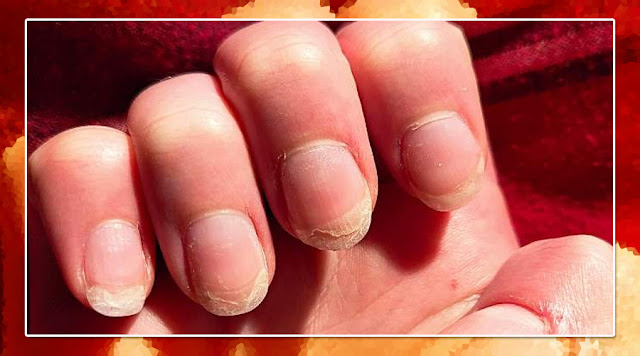Understanding and Remedying Soft Nails: 8 Reasons and Solutions
Soft nails can be fragile and prone to breaking easily. Apart from being aesthetically undesirable, they often indicate an underlying health issue that should not be ignored. Samantha, my manicurist, shed light on the causes of soft nails and shared natural remedies for maintaining healthy nails. Here are 8 reasons why nails become brittle and treatments to address them.
1. Water Makes Nails Soft
While water might not seem harmful, it can adversely affect nails by causing the layers of keratin to swell and separate. This leads to the softening and breaking of the nail tips. Occupations involving constant water exposure, such as those of fishmongers, hairstylists, chefs, and lifeguards, can exacerbate this issue. Solutions for water-induced soft nails include wearing protective gloves, applying castor or almond oil, or using protective and strengthening nail polishes available in the market.
2. Chemicals Harm Nails
Chemicals, including those found in nail products, can cause significant damage to nails. Low-quality nail polish, in particular, often contains harmful ingredients that linger on the nail surface for days. Fake nails or gel nails can also hinder proper nail breathing, leading to weakened nails. To protect against chemical damage, wear gloves when handling such products, choose high-quality nail polish, use a base coat before applying color, and avoid trends like artificial nails that may harm the nail matrix.
3. Pregnancy Causes Brittle Nails
Pregnancy, while a unique period in a woman's life, can bring about deficiencies and unusual changes, including softening of the nails. Hormonal changes and nutritional deficiencies, especially in vitamin B8, iron, sulfur, and zinc, contribute to this condition. To maintain healthy nails during pregnancy, consider a vitamin-rich diet, focusing on fruits, vegetables, dairy for calcium, and iron-rich foods like meat and seafood. If necessary, supplement with vitamins.
4. Fungal Infections Weaken Nails
Nail fragility can result from fungal infections, which can alter the color, cause splitting, and weaken the nails. Acting quickly is essential to prevent the infection from spreading. Remedies include daily lemon juice baths for two weeks, applying royal jelly or honey, and regular nail inspections to prevent moisture build-up.
5. Mineral Deficiency Leads to Soft Nails
Nails reflect overall health, and deficiencies in minerals and trace elements can quickly manifest as soft, brittle nails. Zinc, magnesium, iron, and silicon are crucial for nail health. Consume a diet rich in these minerals or use nail care products containing zinc and silicon. Dietary supplements can also provide comprehensive care.
6. Fatigue Softens Nails
Prolonged fatigue can negatively impact nails and hair, making them soft, brittle, and striated. Adequate rest, medical examinations to identify underlying issues, vitamin and brewer's yeast supplements, and nourishing serums or polishes are recommended for treating soft nails caused by fatigue.
7. Stress Affects Nail Strength
Stress disrupts normal bodily functions, and nails are no exception. Stress-induced habits, such as nail-biting, can deeply damage the nail fibers. Professional stress management, effective remedies against stress, professional manicures, strengthening nail care, and a diet rich in vitamins can help alleviate the impact of stress on nail health.
8. Serious Illness Impacts Nails
Severe health problems can affect the entire body, including nails. Softening and brittleness can result from energy depletion, vitamin deficiencies, and medications. Prompt professional consultation is crucial for understanding the root cause. Complementary supplements may be recommended to address specific deficiencies. For individuals facing serious illnesses like cancer, there are organizations that provide natural nail care sessions, allowing individuals to maintain a sense of femininity and presentable nails despite their health challenges.

